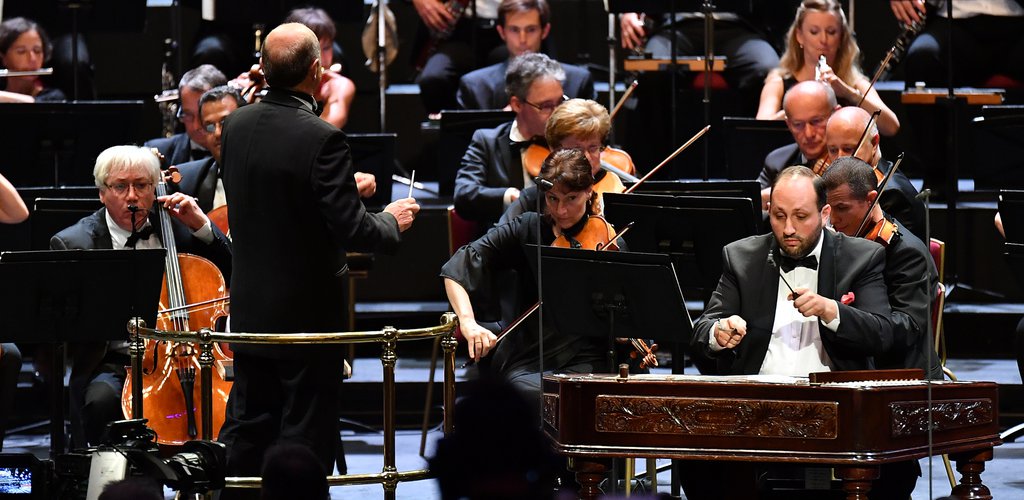There seems no limit to the sheer creativity that fizzes from Iván Fischer and his Budapest Festival Orchestra. For their second night at the Proms, packed out this time, the theme was the meeting of classical and Gypsy musical traditions. And though Fischer, talking to the audience from the podium, kindly explained that the Gypsy tradition is distinct from both Hungarian folk music and classical conservatoires, what emerged was a sense that they have far more in common than might be admitted. Critical review by Jessica Duchen, The Art Desk.
Nothing asserts “Hungarian Gypsy music” quite strongly as a cimbalom centre stage. In case you haven’t met one before, it’s a large zither on legs, its elaborate system of strings played with a pair of beaters, uttering a sound with an acidic, metallic sparkle to it. A great performance on one can dazzle the bejesus out of you.
Jenö Lisztes, one of today’s most famous exponents, often to be found in Roby Lakatos’s ensemble, took centre stage for an eye and ear-popping improvisation before serving as soloist for Liszt’s Hungarian Rhapsody No.1, his extra cadenzas warming up the audience to a point at which the notion of hearing an actual Brahms symphony later on began to seem redundant. He then melded into the orchestra throughout the first half, the sound adding a soft fizz and glitter to the textural background, however Brahms and Liszt the proceedings. Gipsy violinists with the BFO Next we met the Gypsy violinist soloists: József Csócsi Lendvai, introduced by Fischer as an “authentic primás” of a traditional Gypsy orchestra, and his son, József Lendvay junior (pictured above) – a classical competition winner with a Strad. Lendvai senior, with solo spots for the Brahms Hungarian Dance No.1 (“we will try to join in” remarked Fischer) and the Liszt Hungarian Rhapsody No.3, is the real deal indeed: his sound has a soft, wild, rhapsodic lilt and seductive spontaneity that encapsulates accumulated generations of tradition. You’d be lucky to find the style on show in its traditional Hungarian restaurant settings these days; keeping it alive in the era of piped music and rap is another good reason - as if one were needed - for bringing it to the Proms.
